THE alternative community of Orgiva has been back in the news this year after a human skull was found in its midst, while it also emerged that the German prime suspect in the missing Madeleine McCann case spent considerable time in the locality.
Christian Brueckner, 45, was a regular visitor to the Dragon Festival in its heyday and frequently stayed in the area in the years after Maddie vanished from Portugal in 2007, it was revealed in the Olive Press.
However, these are just a handful of the rich and varied things that happen in and around this thriving market town of the Alpujarra of Granada.
With a historical, artistic and colourful community that attracts people from throughout Europe and beyond, it is one of the few rural places in Spain that is a hive of activity.
Orgiva is the hub of Spain’s alternative community, rather like Glastonbury or Totnes in the UK, and hundreds of creative, free-spirited individuals live within the town’s catchment area – and this is where the Olive Press launched in 2006.
Orgiva has three main alternative communities; Beneficio, near the village of Canar; Cigarrones, lying in the riverbed below Tablones, and El Morreon, situated in the Rio Sucio below Orgiva itself.
All three communities date back to the 1980s or early 90s, when the UK had a thriving new age traveller scene – one that could easily relocate to sunnier climes, bringing numerous creative souls in its wake.
These days, the communities are truly international – insists long term resident, Ela Graves, one of the earliest Brits to move to the area – although Beneficio is the only true ‘community’, in the sense of its communal living arrangements, she adds.
Beautiful Beneficio
Beneficio occupies a stunning valley straddling the municipalities of Orgiva and Canar. Around 400 people reside there at present, with various long-term residents living high up on the land, near an old Roman road, while newcomers tend to camp around the lower car park area.
While it has an international feel today, the free-spirited community was originally established by Brits, mostly from Wales.

One of the original local residents, Sorrell Badger, explains that the plans had formented when she was living in the Tally Valley, in Wales, in the mid-1980s. “Some folks were discussing finding somewhere warmer and drier to live under canvas,” she recalls. “So a small group left Tally and journeyed to southern Spain to look for a suitable place to live, and here they discovered Beneficio.”
They initially bought a finca at the top end of the valley and made themselves at home, until – in the 1990s – they were joined by early members, John and Yvonne, who started a communal tipi called ‘Big Lodge’.
Soon, many like-minded people turned up and participated, investing time and money in their shared vision.
One British old-timer – who visited on holiday in 1992 and simply never left – invested in the land with some other community members, who bought two adjoining farms.
Most of the land has always been privately owned, although some is natural park and people aren’t permitted to camp within 15 meters of the river.
While described by some as a ‘peaceful retreat’, a ‘social experiment’ and ‘a spiritual awakening’, others told the Olive Press that a division has recently opened up between some of the old-timers, who want to keep the place tranquil, and those inhabiting the car park area, who are more transient and party-orientated.
There are also various unsavoury tales of some ‘fake gurus’ targeting younger girls.
Most residents agree that ‘Bene’, as it is often known, has more than its fair share of problematic people.
“A lot of people with mental health problems seem to be attracted to Beneficio,” explains Tony, who has also lived in El Morreon, while another local commented that the pólice sometimes send them there. “Sometimes, the Guardia Civil literally drop them at our entrance track,” he says.
However, despite these social issues, there are many positive features to Beneficio, which occupies an inspirational woodland setting.
Romanian mother-of-three, Chunga, who has lived there for 12 years, took the Olive Press on a tour to see the communal lounging and cooking facilities, a natural pool for a cool dip, a women’s space, clothes sharing spaces, and a wooden adventure play area for children.
Despite claims by some local authorities that most residents are not correctly registered in Spain, the majority are actually on the official ‘padron’ at nearby Canar town hall, which has a good working relationship with the community.
Some of its members are even employed on municipal projects, giving them some much needed income.
As mayor Manuel Alvarez Guerrero explains: “We do help those in need, but there is not much that can be done if they are not on the padron.”
He adds that while there are some health and safety concerns for those camping near the river, the locals have a generally positive attitude towards Beneficio.
The town hall collects Bene’s rubbish and its municipal vehicle even delivers firewood, while the school bus picks up around 25 kids each morning and the local ‘comedor’ (dining hall) feeds them at lunchtime.
There is a more uneasy relationship with the PP mayor of Orgiva, Raul Orellana, who locals say is much more confrontational about the settlement. He didn’t respond to a request to comment.
The counterculture of Cigarrones
Along the riverbed beneath the village of Tablones, five minutes from Orgiva, lies Cigarrones, inhabited by people who privately own their land.
Famed for the annual Dragon festival, which was eventually banned, Cigarrones started with an alternative scene in the 1970s, when people from English universities bought and renovated a series of abandoned buildings.
Forward-thinking individuals, they believed in the concept of permaculture and utilised the already-existing irrigation system.
One of these early residents was Ela Graves, who bought land there in the 1980s.
A grandchild of the celebrated writer Robert Graves (‘I Claudius’ and ‘Goodbye to all That’) she was joined by her recently-deceased counterculture hero brother, Davey Graves.
Just above them on the other side of the river, celebrated ‘Driving Over Lemons’ writer, Chris Stewart (a former drummer of rock band Genesis), carved out his own little corner of sustainable paradise.
A creative scene developed in the area, involving the arts and music and, in 1987, a series of new age party crews from the UK started parking up and joining the scene.
This went on for a few years until a huge flood in 1996 enlarged the river basin area, making it an ideal party site and, the following year, the Dragon Festival was born.
Extremely popular with festival types, the festival also pleased a lot of local businesses who appreciated the extra custom – particularly when the event started to attract 10,000-plus revellers.
But the influx didn’t please everyone, with right wing mayor, Adolfo Martin Padial starting to clamp down and sending a heavy handed police presence.
A more receptive socialist mayoress helped a little but the antagonism between the organisers and the town hall eventually became too much and, in 2009, the authorities dug thousands of large holes in the river basin, claiming it was to plant saplings, but making it impossible to park vehicles.
This led to the festival being forced onto private land, and then becoming declared illegal on health and safety grounds.
Large fines were issued to those running the festival, amounting to €30,000, and the eventual threat of imprisonment, as reported by the Olive Press.
Activist Vittorio Miotto organised a series of protests against a local quarry scheme in 2004, leading to his arrest and a big public outcry, which – in the end – derailed the plans with the Junta’s Environment Department denying permission.
Miotto, who sustained a lasting shoulder injury from the protests, says today: “I first turned up in Ciggy to help someone sort out the clutch problem on their bus. It was love at first sight – I’d landed in paradise with old vehicles and food growing everywhere.”
He continues: “The great thing about Ciggy is it’s forever changing, it’s an un-intentional community – everyone just does their thing with respect for others. The ‘elders’ who have been there since the early 90s are all still there, so it must be working.”
Cigarrones certainly still has a collaborative vibe with spaces where people can meet, display their arts and crafts, and share home-grown vegetables, refreshments, and snacks.
The Da La Luz centre is a popular local organisation that attracts people from all over Europe to learn about natural birthing.
One resident, Wibbs, who helped to construct the roundhouse for Da La Luz, says: “We have many different skill sets here – from carpenters, mechanics, graffiti artists, musicians to organic food producers – and it provides a rich melting pot of individuals.”
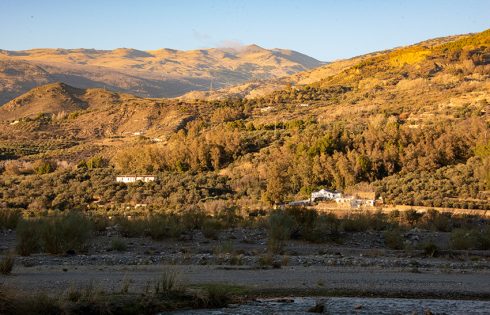
Autonomous living in El Morreon
Orgiva’s third alternative enclave is El Morreon, which runs along the Rio Sucio towards the Rio Guadalfeo.
It was set up in the late 1980s when some Israelis launched a campaign for people to turn up and join and they were sometimes seen riding into town on burros.
Many came from northern Europe, including Nikki B, who moved there in 1994 from the West Country after being told, “if you turn up, you won’t starve”.
She says: “It is a village of many nationalities, including Spanish. Although it’s not a community in the sense of everyone working together as a whole, the village comes together in times of need, change, work, necessity, and the occasional celebration.”
She continues: “Generally, we are a group of similar-minded individuals, some of whom travelled before arriving here and found it fulfilled our needs and became our home.
“We are connected by common aims and inspirations such as self-government, self-responsibility and sustainable living through exchange.
“We also believe in hard work in the gardens, as well as alternative energy sources and low impact dwellings, plus respecting our neighbours and our differences.”
The place has certainly changed a lot over the years, she explains.
“When I arrived it was dry and barren, while now it’s green and abundant. Every year I make olive oil, dry almonds and fruits and preserve vegetables.”
Nikki certainly didn’t starve. “In this environment, I have been enabled to live by donations, exchange skills and food with others. As a result, consumerism does not rule my life and I have time to explore my art and music.
“I was able to follow some of my dreams. I was once told ‘when you live here, you become more yourself than you ever thought. Nobody will take responsibility for you here’. What a beautiful introduction to autonomy and authenticity.”
Nikki was an integral part of the Lux Collective, which was known for its colourful performances at festivals – including its unique take on the ‘Can Can’. Nikki made the troupe costumes and provided rehearsal space.
A local live band, Eat Prunes, a live band that ended up playing everywhere from Marbella to Malaga and Germany to England.
Mother and blogger, Seline Gough concludes: “It was at a Steiner school fundraiser party near El Morreon that I started to understand why people came in their droves to join this community. With the sun going down, surrounded by shadowy mountains, children running wild, friendly folk all around, music, food, and colourful lights, it was easy to see the appeal.”
READ ALSO:
- EXCLUSIVE: Case of skull dug up by dog whips up storm of rumours among expats in Spain’s Alpujarras
- EXCLUSIVE: Skull found at alternative community near Orgiva, in Granada, is now being investigated in Sevilla
- Green and grumpy in the Glastonbury of Spain
Click here to read more News from The Olive Press.

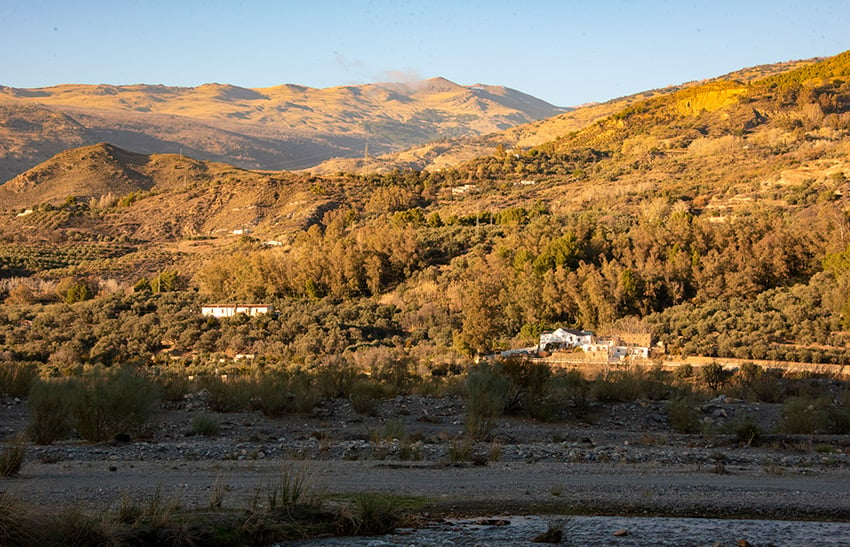
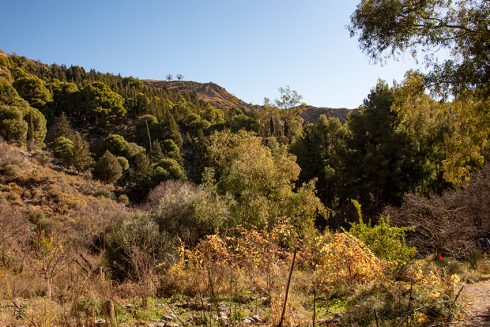
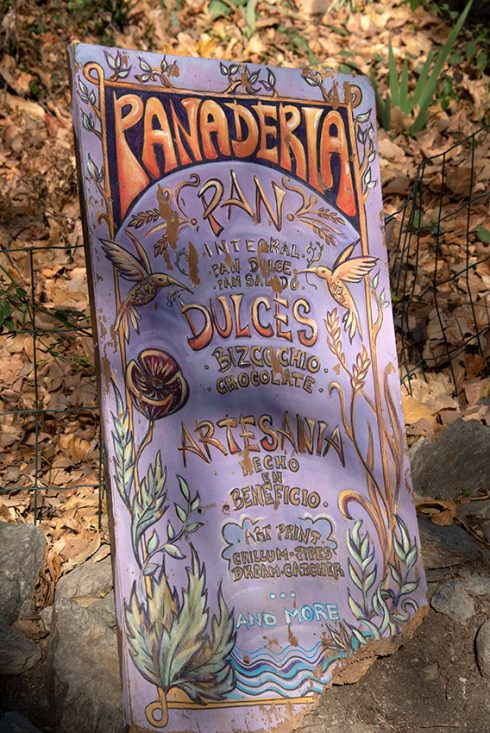

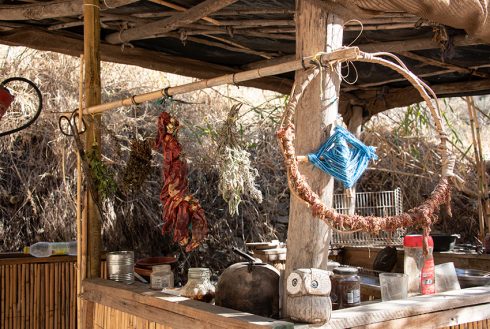
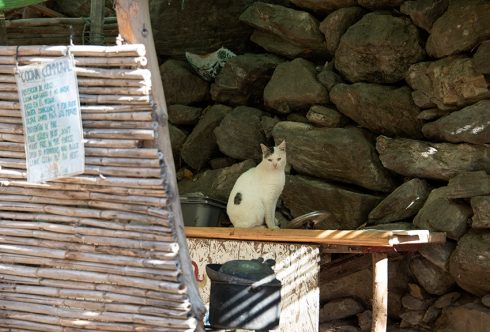

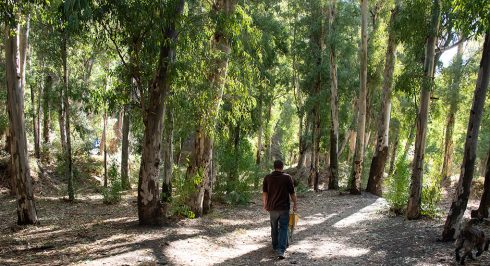




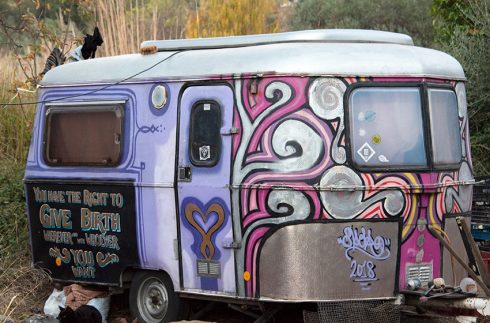
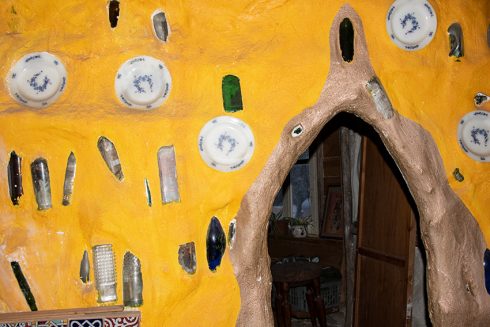

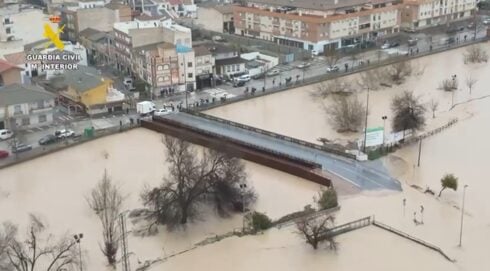

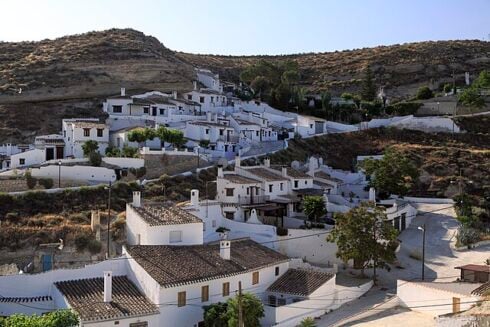
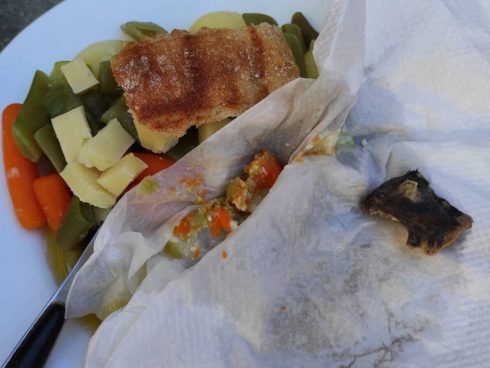

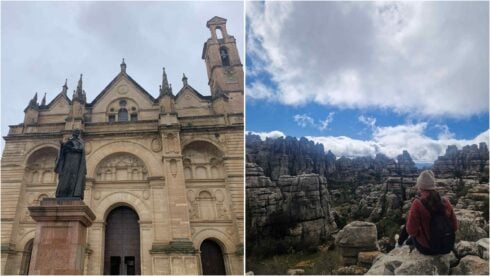
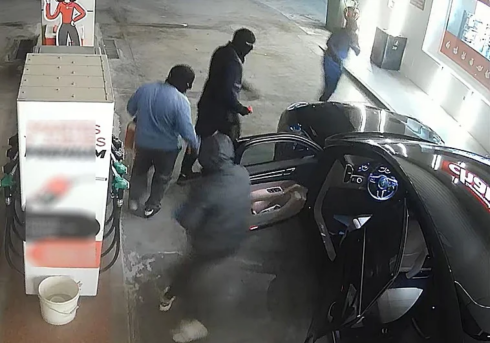
Why is Ela Graves getting a mention? She spouts dangerous anti-vax, anti-science guff – a self-proclaimed guru who just happens to have been here a long time and is just an attention-seeker. Her opinions are often shot down on local online forums. And the ‘Dragon Festival’? Despite what the likes of Miotto and Brimmell would believe, the event caused misery for the vast majority of locals who were glad to see the end of it. Don’t believe it? Ask anyone in town remembers it and see what they say. The author of this article and people like Sorrell Badger delight in holding all night raves keeping people awake all night – ‘respecting our neighbours’ hah!! This article suggests that the hippie vibe is nothing but good when actually it’s self-serving, insular and the antithesis of ‘living as one’. Oh, and the drugs